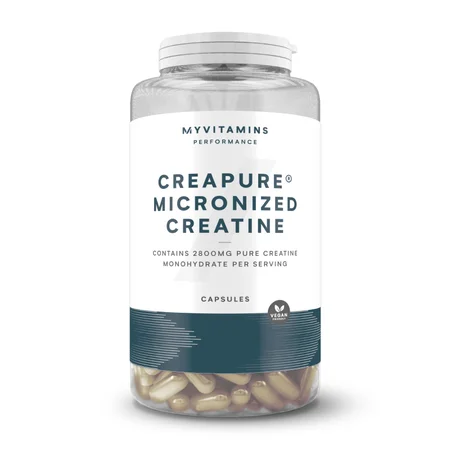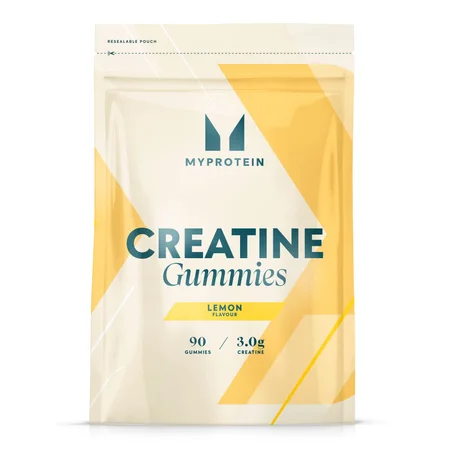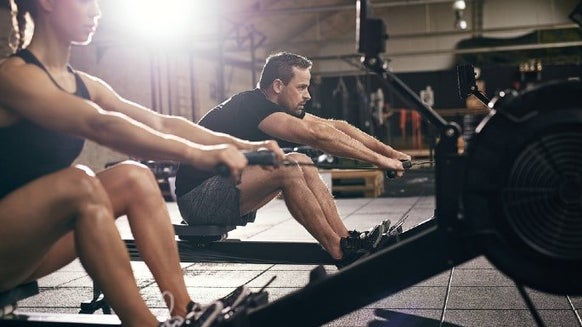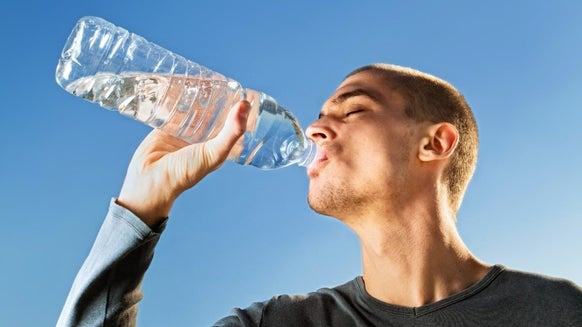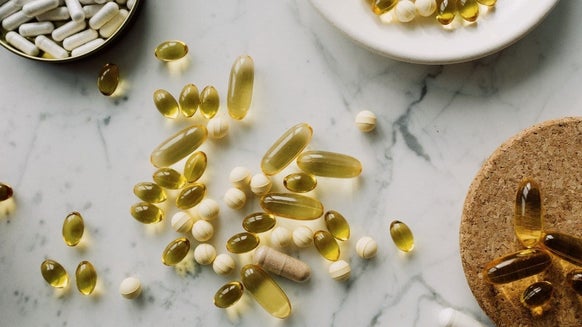
Creatine is often thought of as something only for those who are seriously dedicated to the gym, tracking every macro and lifting
What is creatine? How does creatine work? Benefits of creatine for women Why should women take creatine? Safety and concerns of creatine for women - Super-fruity creatine smoothie recipe
What is creatine?
Creatine is an amino acid that’s found in common food sources such as meat and fish, and is stored in the muscles. It’s a popular workout supplement proven to increase performance and muscle growth.
Some of the creatine in the body comes from food and some is made in the kidneys and liver.
How does creatine work?
Creatine works by helping the body to use the energy stored in the muscles when you take on high intensity exercise (think lifting, sprinting, jumping, etc.).
In addition to boosting performance and muscle mass (in the long term), creatine has other beneficial effects. Creatine supplementation can help the muscles recover faster after a workout by helping to restore optimal levels of stored creatine, helping to regulate your body temperature, and preventing injury.
Benefits of creatine for women
While women often have the same exercise goals as men (increasing strength, power, and performance), some might think creatine isn’t for them for fear of looking “bulky”. However, creatine still holds all the same benefits for women as for men, and there have been studies done into its effects in women specifically.
Creatine can reduce body fat
One study showed that female athletes who supplemented with creatine not only had greater upper body strength, but also had a significant reduction in the percentage of body fat after five weeks of supplementing.
Creatine can increase strength
Another study also showed significant increase in lower body strength for women taking creatine without significant weight gain (no “bulking” effect).
Creatine can boost energy and performance
Vegetarian and vegan women who supplement with creatine may see an even greater impact on their energy levels and performance, since many food sources of creatine are animal based.

Creatine may have other beneficial health effects
Beyond the exercise-related benefits of creatine, the other health effects are that it may help with slowing the progress of neurological diseases, and could potentially benefits heart health.
Other promising potential uses of creatine supplementation show benefits throughout the ageing process, related to strengthening muscle mass (which usually declines with age) and improving bone health, which is crucially important for women.
Women have less bone mass then man and are more prone to osteoporosis (which makes bones brittle and weak) as they age.
Why should women take creatine?
Women should take creatine for all of its proven benefits — to increase high intensity exercise capacity, lean body mass, muscle strength, bone mass, and speed recovery.
As mentioned earlier, creatine for women can help to build muscle and also reduce fat mass, leading to a long-term change in body composition.
Regular supplementation is key to sustaining beneficial levels of creatine in the muscle, so regular creatine supplementation is recommended.
salt and pepper chicken pic 1_1726516047
Safety and concerns of creatine for women
Creatine is one of the most well researched supplements that continually shows beneficial effects with no safety concerns.
Following the recommended dosages (discussed below) will help to minimise any potential side effects.
What dosage is best?
When deciding what dosage of creatine is best for you, it’s important to consider how long you have been using a creatine supplement and for how long you plan to continue to use it. This is because it takes a larger dose initially for the body to maximise creatine stores, and then smaller, more frequent dosages to keep creatine at the optimal level in the muscles.
A study that saw reduced GI side effects with creatine supplementation recommends taking two smaller doses (typically 3-5 grams) of creatine per day instead of one larger (6-10 grams) dose.
Does creatine cause bloating?
More than men, women in particular might have concerns about potential bloating from taking creatine. Creatine plays a role in increasing intracellular fluid (water between the cells), which can make muscles look more defined — some people worry this will cause fluid retention overall, but this isn’t the case.7
There may be an increase in total body water (which means optimal hydration) from continuous supplementation, but taking the recommended dose twice a day was shown to minimise potential gastrointestinal (GI) discomfort and stomach bloating.

Can you take creatine while pregnant?
Since creatine is considered a safe supplement for most individuals — some female athletes may already be taking it regularly when they become pregnant. Because of the beneficial and protective effects that creatine has on the body, there’s some thought to a potential benefit of creatine supplementation during pregnancy.
Women’s bodies and their nutritional needs change (and increase) during pregnancy, especially in pregnant athletes. However, the impact of supplementation on a developing foetus isn’t well known. There’s not much research done on creatine in pregnancy, so it’s best to speak with your doctor before taking any supplements if you suspect you’re pregnant.
Best creatine for women
Take home message
Creatine is a popular performance-enhancing supplement to benefit both male and female athletes. There’s no need to be concerned about getting too bulky or bloated as these myths have been disproven time and time again.
READ THESE NEXT:

Claire is a Registered Dietitian through the Academy of Nutrition and Dietetics and a board-certified Health and Wellness Coach through the International Consortium for Health and Wellness Coaching. She has a Bachelor of Science in Biology and a Master’s degree in Clinical Dietetics and Nutrition from the University of Pittsburgh.
Talking and writing about food and fitness is at the heart of Claire’s ethos as she loves to use her experience to help others meet their health and wellness goals.
Claire is also a certified indoor cycling instructor and loves the mental and physical boost she gets from regular runs and yoga classes. When she’s not keeping fit herself, she’s cheering on her hometown’s sports teams in Pittsburgh, or cooking for her family in the kitchen.
Find out more about Claire’s experience here.
1. Kreider, R. B., Wilborn, C. D., Taylor, L., Campbell, B., Almada, A. L., Collins, R., … & Kerksick, C. M. (2010). ISSN exercise & sport nutrition review: research & recommendations. Journal of the international society of sports nutrition, 7(1), 7.
2. Kreider, R. B., Kalman, D. S., Antonio, J., Ziegenfuss, T. N., Wildman, R., Collins, R., … & Lopez, H. L. (2017). International Society of Sports Nutrition position stand: safety and efficacy of creatine supplementation in exercise, sport, and medicine. Journal of the International Society of Sports Nutrition, 14(1), 18.
3. Brenner, M., Rankin, J. W., & Sebolt, D. (2000). The effect of creatine supplementation during resistance training in women. The Journal of Strength & Conditioning Research, 14(2), 207-213.
4. Kambis, K. W., & Pizzedaz, S. K. (2003). Short-term creatine supplementation improves maximum quadriceps contraction in women. International journal of sport nutrition and exercise metabolism, 13(1), 87-96.
5. Tarnopolsky, M. A., & Maclennan, D. P. (2000). Creatine monohydrate supplementation enhances high-intensity exercise performance in males and females. International journal of sport nutrition and exercise metabolism, 10(4), 452-463.
6. Chilibeck, P. D., Candow, D. G., Landeryou, T., Kaviani, M., & Paus-Jenssen, L. (2015). Effects of creatine and resistance training on bone health in postmenopausal women. Medicine & Science in Sports & Exercise, 47(8), 1587-1595.
7. Powers, M. E., Arnold, B. L., Weltman, A. L., Perrin, D. H., Mistry, D., Kahler, D. M., … & Volek, J. (2003). Creatine supplementation increases total body water without altering fluid distribution. Journal of athletic training, 38(1), 44.
8. Ostojic, S. M., & Ahmetovic, Z. (2008). Gastrointestinal distress after creatine supplementation in athletes: are side effects dose dependent?. Research in Sports Medicine, 16(1), 15-22.
